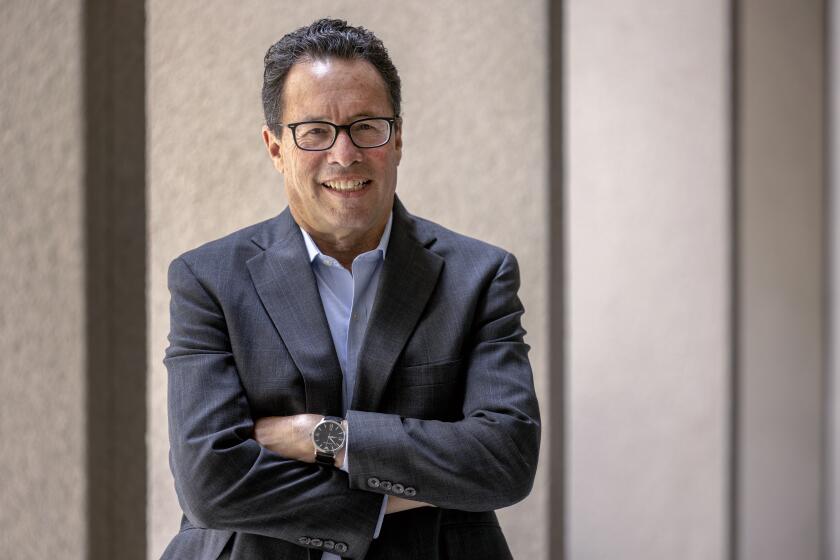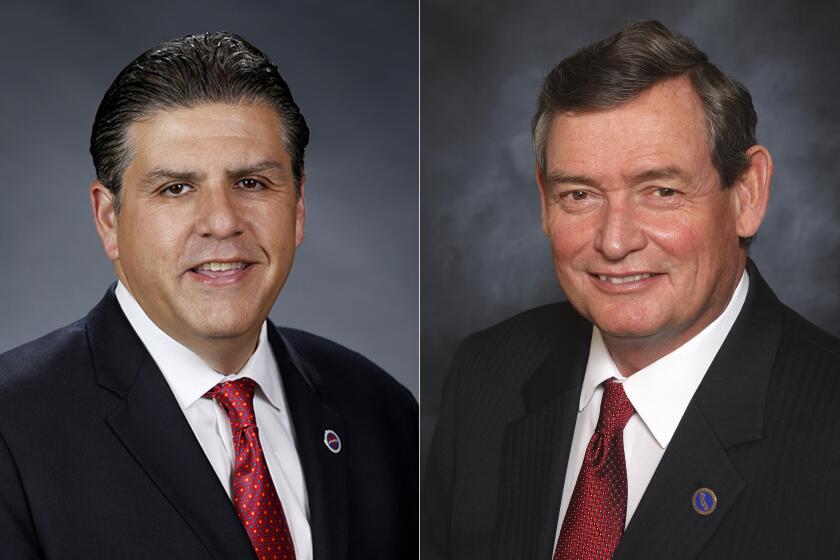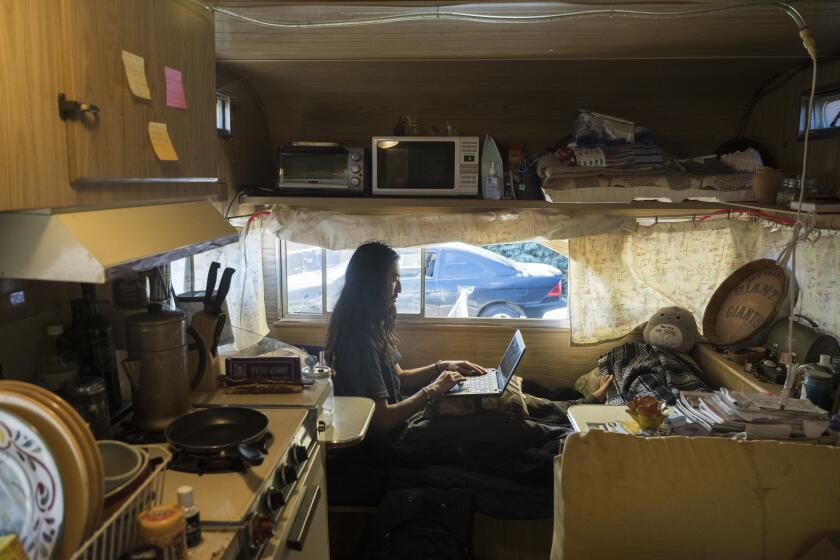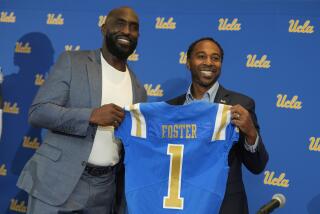UC San Diego chancellor to make $1.14 million a year after $500,000 pay raise
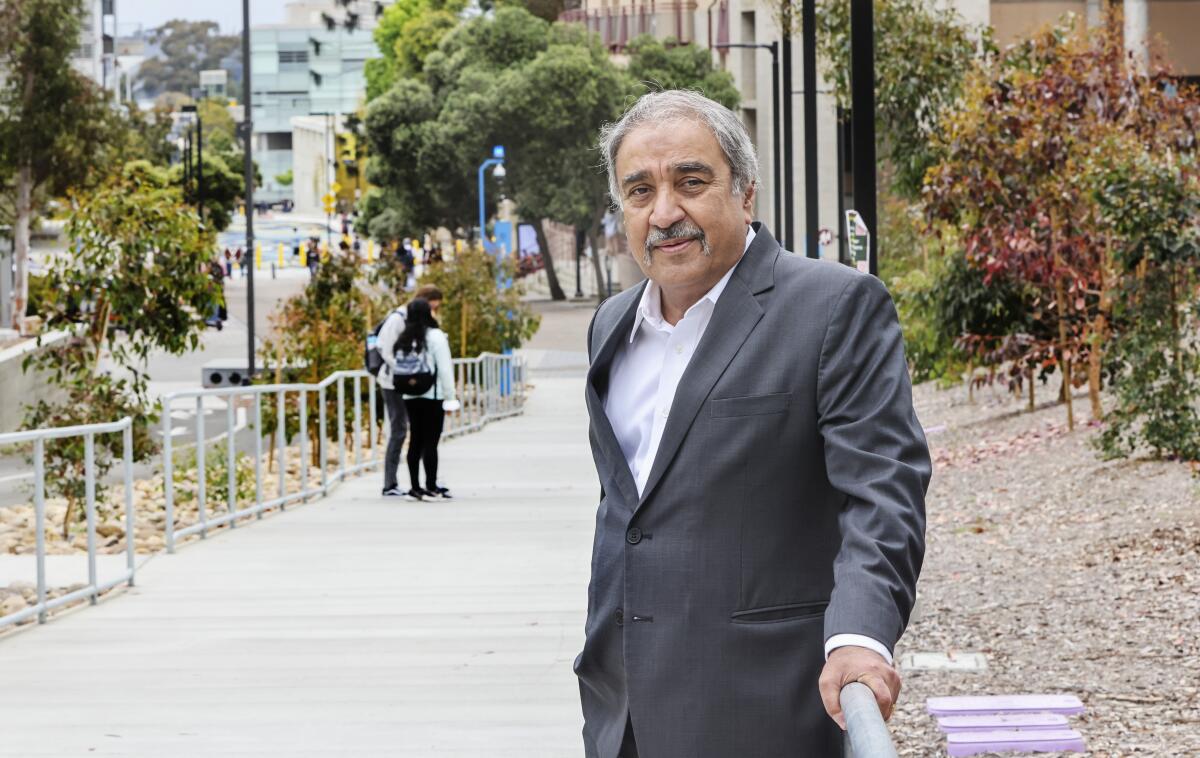
- Share via
UC San Diego Chancellor Pradeep Khosla has been given a $500,000 pay raise by the University of California Board of Regents, which said it made the move last week to prevent him from accepting the presidency of an unnamed, private out-of-state school.
Khosla, who is drawing high praise for guiding an unprecedented $8.5-billion expansion of the campus, will begin earning $1.14 million a year in base pay May 1. Only four other public university presidents and chancellors received more in base pay in 2021, the last year for which data are available, according to a survey by the Chronicle of Higher Education.
All of Khosla’s new raise will be paid for with private money. Rich Leib, the San Diego businessman who serves as chair of the Board of Regents, said private donors in the San Diego area collectively gave about $13 million to endow a chair whose interest income will cover the added cost.
Rich Leib bombed the SAT but now heads the University of California’s powerful Board of Regents. Top priorities: wider student access, more diversity, research support.
Endowed chairs are common in academia. But they are rarely funded at that level and are usually given to full-time faculty rather than presidents and chancellors.
The Khosla endowment comes just over a year after UC Regents spent roughly $800,000 to increase the salary of the chancellors who run the system’s nine undergraduate campuses. The board said the hike was necessary because its chancellors weren’t earning as much as the leaders of many comparable schools.
Leib would not identify who donated the $13 million but said the money was raised quickly out of concern that UCSD would lose Khosla, who oversaw a record $3.05-billion campus fund-raising campaign that ended last year.
“There was a very, very strong commitment from the community to get this done because of what Pradeep has meant to San Diego, including helping to bring the Blue Line trolley to campus and building lots of housing,” Leib said.
CSU has paid more than $4 million in salary and benefits to a small group of former executives including former Chancellor Joseph I. Castro, who resigned last month
Irwin Jacobs, co-founder of chipmaker Qualcomm, told the San Diego Union-Tribune he was one of the donors but declined to say how much money he gave. He was quick to praise the 66-year-old Khosla, who became the school’s chancellor in 2012.
“He has done a wonderful job for the campus, for the city, for the region and internationally,” said Jacobs, one of the school’s largest benefactors.
“He’s been watching over tremendous growth that’s allowed more Californians to be admitted, he’s worked with the faculty, staff and donors on all accounts, and he’s dealing well with the housing issue.”
Khosla declined to comment late Tuesday.
UCSD had just over 28,000 students when he arrived. Today, it has roughly 43,000. Khosla said last year enrollment could hit 50,000 in about a decade.
Litigation blocking student housing projects, a potential delay in state funding and escalating construction costs are among the challenges.
The enrollment boom resulted in a housing shortage that pushed nearly 3,200 students onto waiting lists in 2021. The shortage occurred even though UCSD added on-campus housing for more than 5,500 students during Khosla’s first decade as chancellor.
The school is hustling to meet future demand, chiefly through the addition of high-rise dorms and apartments. This fall, UCSD will open a new village that can house 2,000 students. A similar village that can house an additional 1,300 will open in fall 2024. And the campus will break ground this summer on a village that can house 2,400 students.
The university also is drawing up plans for a village that could house 3,500 to 4,000 students. When it is finished, UCSD would be able to house close to 28,000 people — more than twice the population of Solana Beach.
More to Read
Sign up for Essential California
The most important California stories and recommendations in your inbox every morning.
You may occasionally receive promotional content from the Los Angeles Times.
